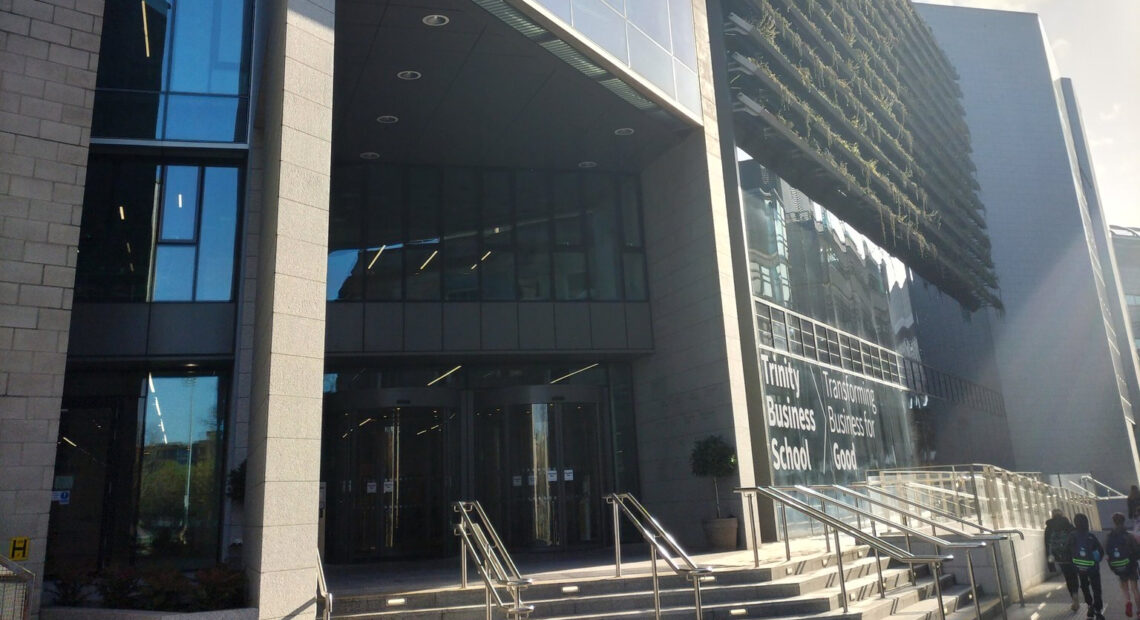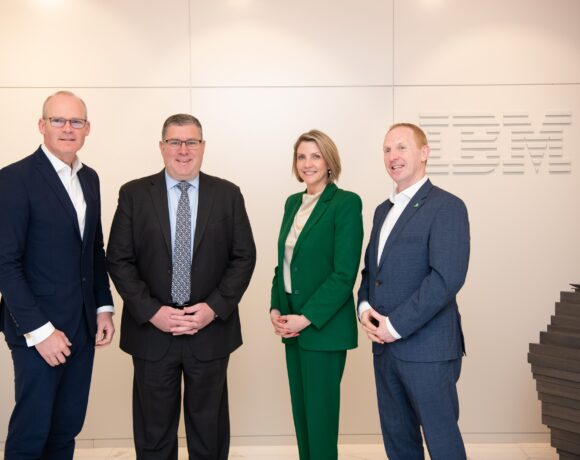The winners of Design & Crafts Council Ireland’s Irish Business Design Challenge 2023 (IBDC) were announced at an awards ceremony in Tangent, Trinity College Dublin by Neale Richmond, Minister of State at the Department of Enterprise, Trade and Employment with special responsibility for Employment Affairs and Retail Business. The three category winners, micro, small and medium, will each receive a prize of €15,000. Three runners-up prizes of €2,000 each were also awarded, and two entries were highly commended by judges.
107 businesses entered this year’s Design & Crafts Council Ireland Irish Business Design Challenge, 44 of whom were shortlisted and invited to the awards ceremony. The Irish Business Design Challenge is focused on raising awareness of the importance of incorporating design and sustainability into business strategy, and the benefits it brings to those businesses and the wider Irish economy and society.
Of the 44 shortlisted, the Irish Business Design Challenge winning companies are as follows.
Micro Category
Category Winner: Westcountry Willows
Based in County Roscommon, this husband and wife-led business specialises in making a range of handmade basketry products using locally sourced, naturally grown and renewable willow. Westcountry Willows has demonstrated innovation and foresight in the development of a new, hand-made coffin woven entirely from willow. This product substitutes the use of environmentally damaging varnishes and other chemicals used in traditional coffin making with naturally biodegradable willow.
Small Category
Category Winner: The Factory
Based in County Offaly, the Factory is a second-generation family run business specialising in the supply of sustainable printing and print products using recycled and sustainable paper, plant-based inks and plastics-free packaging and the reuse of rainwater in its production processes. The Factory has care for the environment and sustainability at the heart of its ethos and the products and services it supplies. It is expanding its services to graphic design and web development.
Medium Category
Category Winner: Farrell Furniture
Established in the early 1960s and operating from Ardee in County Louth, and with a presence in the UK, Farrell Furniture are specialist suppliers of furniture and fit-out services to the commercial office, rental and residential sectors. This award is for a highly significant project which partnered with the OPW and the Atlantic Technical University to re-imagine and refurbish the Arthur Edwards-designed Crannac Chair which has been widely used in public sector offices for over forty years. The project reverse engineered this iconic staple of public offices, bringing new life to these chairs while safeguarding their design heritage for future generations. This project was a practical demonstration of true circularity, to significantly lengthen the service life of these chairs at scale and prevent their destruction and entry into the waste stream.
Now in its third year, the Irish Business Design Challenge from Design & Crafts Council Ireland supports companies applying design thinking to future-proof their business and support customer needs. This year’s challenge focused on companies that have used design thinking in their business by making them more sustainable and efficient.
Speaking at the awards, Minister Richmond said, “programmes such as the Irish Business Design Challenge shine a light on the innate creativity and innovation of Irish MSMEs. The last few years have taught businesses to be flexible and adapt quickly, which has been proven through this year’s Irish Business Design Challenge winners. I would like to take this opportunity to thank DCCI for their commitment to championing Irish design and the entrants for proving that smaller businesses can do big things when given the platform.”
Suzy O’Keefe, Head of Digital & Communications at Design & Crafts Council Ireland said, “each of these companies highlighted a deep understanding of how design thinking can be used to increase a business’s efficiency and the impact this can have on an economic and environmental level. It is incredible to see the ingenuity and innovation behind some of Ireland’s MSMEs and it makes us very hopeful for the future of both Irish businesses and Irish design.”
Tom Watts, Head of Design at Design & Crafts Council Ireland said, “it is an honour to be able to recognise these companies for the amazing work they have done to transform their businesses into such models of sustainable and circular design. The outcome of this challenge is that six companies have been funded in furthering their commitment to these principles, raising the bar and creating a new benchmark. Support like this will encourage these companies to consider themselves as thought leaders and design thinkers, and that is a great thing to be a part of.”
The awards presented were designed by previous Irish Business Design Challenge winners, Notions Creative, with sustainable and circular principles in mind. The awards were created from waste materials which they already had in their workshop – an effective reuse of by-products from manufacturing which were otherwise destined for landfill.
As a testament to the positive impact that the Irish Business Design Challenge is having in driving the design and sustainability agenda across the business community in Ireland, all 44 shortlisted entrants have also been invited to apply to participate in the Circuléire Accelerator Programme.
Commenting, IBDC judge and Circular Lead at the National College of Art and Design, Gwen Cunningham said, “business as usual, is not an option anymore. This year’s Irish Business Design Challenge celebrates SME’s that have recognised this reality, and are demonstrating what it means to do things differently. How do we serve and satisfy people’s needs and wants – such as nutrition, mobility, housing, and basic goods – within planetary boundaries? This is the greatest design challenge of our time.”
“It’s been really heartening to see the calibre of circular design innovation. This year’s IBDC winners and runners-up demonstrate how circular business makes common sense – allowing us to decouple economic growth from material use, improve competitiveness and resilience, accelerate innovation and create jobs – all whilst fighting the climate and biodiversity crises.”













